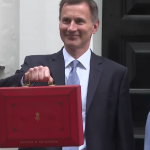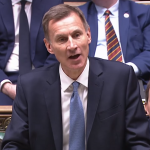Why make RBS back small businesses, but not renewables?
There is much to write about yesterday’s budget, but I thought I would highlight just one paradox – one I genuinely don’t understand.
Alistair Darling announced a £1bn fund for low carbon projects. This green investment bank is designed to provide the stimulus which will encourage other lenders to also back renewable energy projects and the like. The Treasury reckon this will lead to a total of £2bn extra for low carbon infrastructure. In itself this is to be welcomed, but is nothing like the level of investment we need in climate protecting technologies if I am to have a comfortable retirement come 2050. So far so normal.
Alistair Darling also announced that the bailed-out banks would be given new requirements to lend to small businesses. They did a similar thing back in November with their ‘asset protection scheme – again, no massive surprise. OK, so, here’s the paradox. In the last couple of weeks, 84% public-owned RBS have made two major energy related announcements.
1) They are cutting their backing for renewable energy projects and companies.
2) They are opening a new office in Alberta so they can get more involved with tar sands extraction – often described as ‘the most destructive project on earth’.
The second of these is pretty significant. If we don’t stop tar sands extraction, we can’t stop run-away climate change. A recent report from oil experts at PLATFORM shows that, since the bail-out, RBS have already backed tar-sands companies to the tune of $2.5bn. This more than negates all of Darling’s support for renewables. The Treasury, and UK Financial Investments (who manage our shares in the bail-out banks on behalf of the Treasury) faced a Select Committee hearing on what the bailed out banks could do to back the transition to a low carbon economy a fortnight ago. MPs from all major parties ripped them apart for failing to stop RBS backing companies involved in projects like tar sands, with Martin Horwood later describing it as “The angriest Select Committee I’ve ever seen”. Colin Challen argued that the failure to use RBS to finance the transition to a low carbon economy would be seen as ‘the great missed opportunity’ once climate change begins to bite . The Government has decided that it wants to lever private finance behind green energy projects? Great. It is holding one of the biggest financial levers in the British economy. It is willing to use it for other good things. Why won’t they use RBS to lever finance behind their own green investment bank? I am genuinely baffled. Adam Ramsay works for People & Planet (www.peopleandplanet.org) campaigning of climate change finance, and writes for www.brightgreenscotland.org




I have seen that car insurance companies know the autos which are at
risk from accidents as well as other risks. Additionally , they know what types of cars
are inclined to higher risk plus the higher risk they’ve already the higher the premium price.
Understanding the very simple basics involving car insurance will allow you to choose the right type of
insurance policy which will take care of your wants
in case you become involved in an accident. Thank you for sharing your ideas on your blog.
Also visit my site :: Nia Coleman
“Why make RBS back small businesses, but not renewables?
| Bright Green” ended up being quite enjoyable and instructive!
Within modern universe that’s really difficult to execute.
Thx, Jeanette
my blog post: Wilfredo
My partner and I stumbled over here from a different page and thought I should check things out.
I like what I see so now i’m following you. Look forward to looking at your web page repeatedly.
While Dark Knight Rises , International Olympic Athlete Touches down ready for the Big Competition |
Hey not to set off topic but can anyone give me overview of. New York Car Insurance Reform 295 Greenwich St, New York, NY 10007 (646) 351-0824 They are down the block from me. I was wondering once they were a good insurance agency. I need to get hold of coverage, it is regulations you know, but I have to have a good price price plus I’d prefer friendly service.
i also started a small busines at home and it is a great way to invest your retirement money .